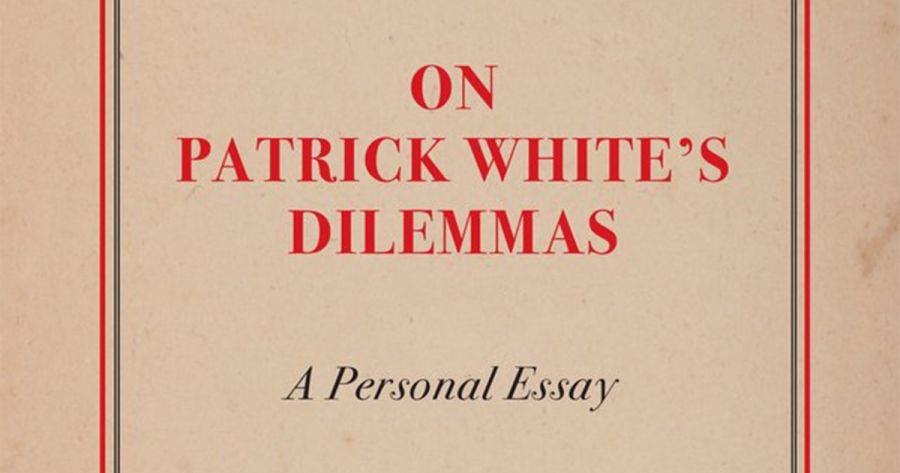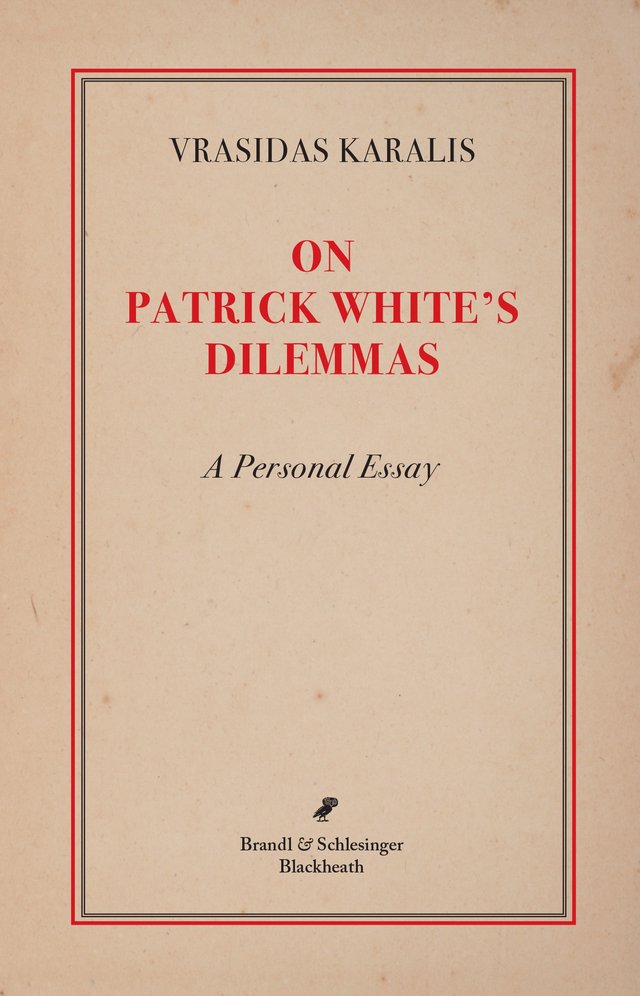
- Free Article: No
- Contents Category: Literary Studies
- Review Article: Yes
- Article Title: A difficult writer
- Article Subtitle: Patrick White’s address to the ineffable
- Online Only: No
- Custom Highlight Text:
‘Lonely Country’ is the term Arnhem landers use for empty or uncared-for places. Sometimes the custodians have died. In other cases, the land is simply too difficult to get to or inhabit. Whatever the reason, Lonely Country brings sadness. There is no one to burn the bush or manage it; no one to call out to the spirits of the old people who remain on their Country, isolated from the living.
- Book 1 Title: On Patrick White’s Dilemmas
- Book 1 Subtitle: A personal essay
- Book 1 Biblio: Brandl & Schlesinger, $26.99, 224 pp
- Book 1 Cover Small (400 x 600):

- Book 1 Cover (800 x 1200):

- Book 1 Readings Link: https://www.readings.com.au/product/9780645235074/on-patrick-whites-dilemmas--vrasidas-karalis--2025--9780645235074#rac:jokjjzr6ly9m
Lonely Country comes to mind when thinking about Patrick White, whose books are landscapes of the mind. Mighty novels like The Tree of Man (1955) and Voss (1957) stand like weathered monoliths in the distance. But who goes there now? It is hard to imagine that White’s novels used to appear on the high-school syllabus. These days he is deemed ‘too difficult’. The upshot is that since his death in 1990, the Nobel laureate has become what Margaret Cohen called one of the ‘great unread’.
One voice which has lessened the loneliness around White is that of Vrasidas Karalis, a most empathetic interpreter. Unlike an earlier generation of critics who hoped that White would one day produce The Great Australian Novel, Karalis eschews any sort of nationalistic reading. He is also wary of critics who apply to White’s enigmatic corpus the lens of gender theory, post-colonialism, queer theory, or indeed any ‘ism’. Karalis argues that while such approaches can be useful, they are too often anachronistic and run the risk of ‘diminishing the historical consciousness inscribed in the work’.
In drawing attention to that ‘historical consciousness’, which he connects with the displacement of the land’s original custodians, Karalis has written a complex and intriguing book that takes the reader on an impassioned journey through White’s plays and occasional non-fiction, and especially his novels. On Patrick White’s Dilemmas is subtitled ‘A personal essay’ and it roams expansively, speaking in different registers and voices. As the subtitle suggests, it is deeply personal work, reading at times like a fireside meditation in which the author recounts his formidable journeying through the world of White and the world of the novel more generally. But this slender book is also a deeply political engagement with the act of reading. Novels to Karalis are ‘imaginative constructions of self-recognition not journalistic documentations of an era’s panics’.
So, who is this commentator on White and where did he come from? As Karalis explains, he became a reader of White in his teenage years. Born in Greece, he migrated to Australia in the early 1990s to take up an academic position at the University of Sydney. He would go on to translate Voss, The Vivisector (1970), and the play A Cheery Soul (1963) into his mother tongue. On Patrick White’s Dilemmas brings to the discussion of White the perspective (and the dilemmas) of a translator, a role integral to the diffusion of White’s work – and to the very notion of world literature itself – yet one too often devalued or taken for granted, especially in the monolingual Anglosphere. The trials of translating White can be easily imagined by his readers. Karalis amusingly describes the torment caused by just a few words from A Cheery Soul: ‘I never knew before … but “dog” is a “god” turned around.’ How on earth do you turn that into Greek?
Karalis identifies White’s mission as being ‘about articulating the multiplicities that confuse us’. White is a writer forever delving into the ineffable, the ungraspable. He depicts a human plight unhinged by the fragility of all definitions, all categorisations, indeed all efforts to harness and make sense of the real – including language itself. Hence the challenges of rendering White’s prose in another tongue. ‘Translation leads to an intimate and deeply personal engagement with the text,’ Karalis explains. ‘You even find yourself crying as you struggle with language which begs to migrate from one printed page to another.’
These days, Karalis is Professor of Modern Greek at Sydney. His work on White is part of a diverse range of publications spanning cinema studies, literary criticism, and works on Hannah Arendt and Martin Heidegger (to give a selective overview). He is also the author of a growing suite of memoirs and more personal monographs including The Stories of My Grandmother, a bestseller in Greece.
Australia has not shown the same enthusiasm for Karalis. Yet, his books are passionate, expansive, readable, sometimes funny, and stunningly erudite. His Recollections of Mr Manoly Lascaris (2007) is a little-known jewel of a book. It is based on a long series of conversations between Karalis and White’s long-term partner and muse. He first met Lascaris in 1994 and they ‘became close for several years then drifted apart’. Lascaris, who was born in Cairo into a Greek family, has too often been dismissed as a mere appendage of the Great Writer. In an overdue correction, Karalis demonstrates the extent of Lascaris’s understanding of, and participation in, his partner’s life project.
Not surprisingly, Lascaris appears occasionally in On Patrick White’s Dilemmas, preoccupied as it is with the potential for reading to transform perception. White ‘trusted imagination in his attempt to discover reality,’ writes Karalis. Without imagination, ‘the real remains amorphous and formless’.
White, when he was alive, tested the tolerance of Australians for mysticism and metaphysical speculation. That is one reason why they abandoned him, making of his corpus a lonelier country than it deserves. But the current neglect is also related to the mirror image that White presented to Australians. They found it unflattering – and it was!
Karalis has little argument with White’s critical view of Australian insularity, which was undoubtedly influenced by Lascaris’s experience as a migrant in the 1950s, as well as his growing abhorrence at the treatment of Indigenous people. The final passage of On Patrick White’s Dilemmas is an imagined letter to White in which Karalis refers to his own journey of migration and his struggle to understand the country. Initially, Karalis consulted the standard history books about Australia, but found that they
told me little about the people or the place. Nothing about their inner dilemmas, their dreams, nightmares, convulsions of regret, elations of joy. Who were these notorious monsters who conquered the land, exterminated the indigenous people, destroyed the green pastures, persecuted the immigrants and established ‘the lucky country’ which only they themselves had the right to enjoy?
Of course, none of this is exactly new, but for a migrant to say it publicly comes close to blasphemy in the religion that is Australia. In Patrick White’s Dilemmas, Vrasidas Karalis reveals the desirability, indeed the necessity, of the outsider perspectives which are essential to understanding the world of Patrick White (and so much else).


Comments powered by CComment